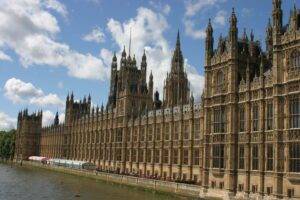
The House of Lords Communications and Digital Committees has criticised the government’s response to their digital exclusion report as the government highlighted they would not be creating a new strategy to address digital exclusion within the UK.
The response to the Committees recommendations has been described as lacking ambition and failing to engage with the concerns raised by the Committee’s inquiry and subsequent report. A UK Government digital inclusion strategy was last created in 2014, but the Department for Science, Innovation and Technology has indicated limited appetite for a new strategy.
Broadly, the government has expressed that the principles from the latest strategy are still correct, that they are not keen on setting up a dedicated digital inclusion unit within Government and are not supportive of VAT removal on social tariffs or the removal of VAT on wholesale broadband.
Additionally, the government indicated that it did not plan to give Ofcom powers to ensure social tariffs are appropriately promoted, embedding digital skills targets across education life stages and expanding internet voucher schemes to more people in need.
There has been a commitment to setting up a cross-ministerial committee, involving all the major government departments that are looking at digital inclusion while a review into what government departments, particularly DSIT, can do in terms of device donations has been agreed.
Elizabeth Anderson, Interim CEO of Digital Poverty Alliance, said: “When we look at statistics that highlight 13 – 19 million people over the age of 16 are experiencing some form of digital poverty, while it is estimated that 20 per cent of children are in digital poverty, it is disappointing to see that there will be no new strategy to address this growingly urgent issue as more essential services – from homework to welfare services – move online only.
“It is positive to see the creation of a cross-ministerial committee and we will be very keen to engage with them to address digital inclusion, and we support activity to review what more government departments can do in terms of device donation.”
“However, we believe more must be done to demonstrate that digital inclusion is a government priority. Millions of people are still experiencing digital poverty, and the consequences of not being online are becoming more pronounced. Government needs to adopt a long term and strategic approach to ensure that the millions of people offline do not get left behind – with new ideas and innovation. We particularly welcome the cross-departmental group to address the issue and will be keen too engage with government going forward. It is essential that government, businesses and the third sector work together to ensure we can meet our goal of eradicating digital poverty by 2030.”
Baroness Stowell, Chair of the Communications and Digital Committee said: “Digital exclusion is not a problem that will solve itself. It is an ongoing challenge and we need clear direction from the Government about how they will prioritise making sure people are not excluded or left behind when it comes to enjoying the benefits of being online.
“Our report set out a series of key areas where the government could take the lead in tackling the digital divide, including in developing digital skills and confidence among those with the lowest level of digital capability.
“In their response the government have reasserted that digital exclusion is a priority, but their actions do not live up to the words. It is simply not credible to claim it is a priority when the key strategy for helping people keep pace in such a fast-moving area is over a decade old. It is disappointing that the Government’s response has not taken up the Committee’s positive challenge and signalled the ambition needed to close the digital divide for the UK to thrive as a tech superpower.”
Read more:
House of Lords criticise Government response to digital exclusion report





